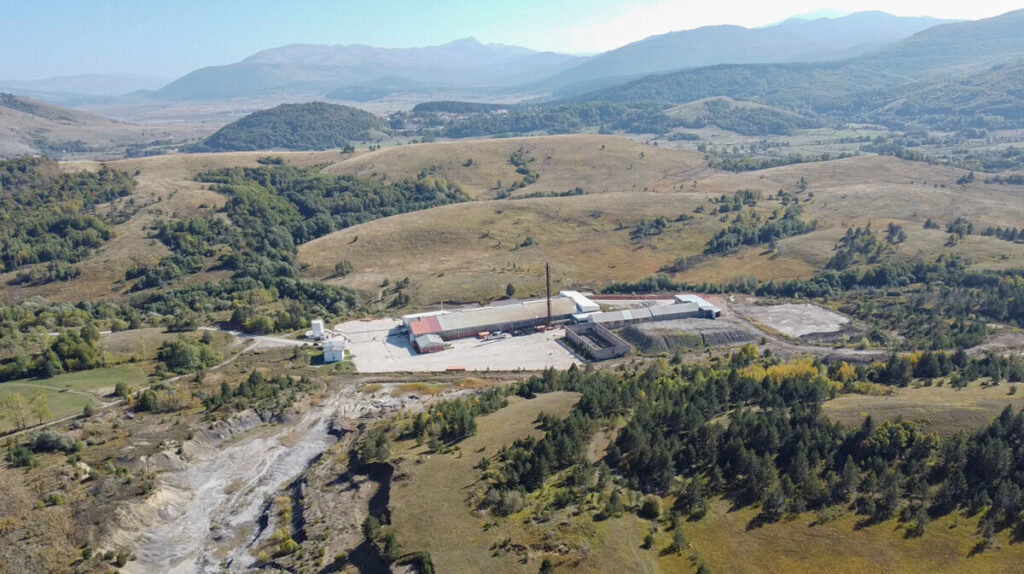A brief presentation of plans for building a tire pyrolysis plant at the local Brick factory was held on Thursday in Bosansko Grahovo. Although this wasn’t an official public hearing, the citizens of Bosansko Grahovo gathered in large numbers and made it clear that their priority is environmental preservation, vehemently opposing this and similar projects.

The Center for Environment learned about the construction plans from concerned citizens who noticed unusual activities at the Brick d.o.o. factory during the night, suspecting assembly of pyrolysis equipment was taking place. After citizens informed the media, the factory owner invited them to a meeting, held in the elementary school hall, where basic information about the project was presented.
“It is important to emphasize that what happened today, in the eyes of the law, is not a public discussion. If this had occurred earlier, we could call it goodwill and a positive practice for investors to inform the local population about their plans. However, since it’s happening only after the story has already gained momentum, it’s more like crisis management. Unfortunately, we haven’t received enough information to draw any significant conclusions yet. As far as we know, no application for an environmental permit has been submitted, no waste management permits have been issued, and there is currently no available or existing environmental impact study. This means we currently only have the word of the investor and the people from SGI Technology who joined the investor in the presentation. We also have a very loud and clear stance from the locals,” stated Igor Kalaba, an assistant in the Biodiversity and Protected Areas program at the Center for Environment.
Many people from Bosansko Grahovo and those who, though originally from there, have built their careers abroad attended the forum, including several experts employed at universities in Banja Luka, Belgrade, Podgorica, and elsewhere.

Retired professor Drago Marić, who taught courses related to the ecology of aquatic ecosystems at the Faculty of Science in Podgorica, among other things, said: “The gentleman from SGI today mentioned several examples of plants in Belgium and England that this company has initiated. Tell me, how many endemic species do you have near that plant in England, probably none. Here, just by looking at the fish nearby, we have two endemic species!”
The significance of the pristine environment dominated the event; several participants stated that clean air and nature are all they have left, as well as their future.
“In our municipality, such a plant would be very harmful, both to people and their economic activities and to nature itself. We almost have no industry; this is literally untouched nature. Since the war, as a tree fell, so it remained. Bosansko Grahovo should be a national park, not a landfill or an industrial zone!” said Veljko Arežina, a citizen of Bosansko Grahovo, who returned to his hometown after 19 years spent in USA.

Concerns are evident among farmers, beekeepers, and other farmers who have invested time and money in this municipality, envisioning the future in tourism as well:
Asked for his opinion on the project, Rade Vještica, who is engaged in beekeeping, stated: “What can I tell you when beekeepers with over 1500 hives come here just from the side? Local beekeepers also have thousands of hives, all thanks to the clean nature. A few weeks ago, I received a gold medal for the quality of my honey in Tuzla, at an international competition. If the facility is built, it’s over for us.”

Representatives of the Municipality of Bosansko Grahovo also attended the discussion. Slađana Čeko, the President of the Municipal Council of Bosansko Grahovo, stated that the will of the people is the greatest achievement of democracy and must be respected in all cases.
“The function that I, as the chairwoman of the Municipal Council of Bosansko Grahovo, perform in this term is assigned solely by the votes of the people, whose will we must respect regardless of their political, religious, or national affiliation. Since I also live in this city with my family and share all the hardships that press on everyone individually, I cannot be lenient towards undertakings that could harm people and their environment. Therefore, at the next session, scheduled for October 24, 2023, the Municipal Council will make a Conclusion regarding this case.”

The Center for Environment will continue to monitor all processes related to this plant and assist all citizens fighting for a healthy environment. Certain industrial processes are inevitable in today’s society; however, transparency and a procedure based on legal order and scientific data are essential.
“Unfortunately, the fears of the citizens of Bosansko Grahovo are entirely justified, not because of the reputation of the above-mentioned investors and contractors but because of the frequent practice in Bosnia and Herzegovina where plants and mines start without obtained permits, only to get them ‘on the go,’ after starting production processes and causing harm to the environment and local populations. In all strategic documents we have obtained, the future of Bosansko Grahovo is inseparably linked to sustainable and responsible management of natural resources, including organic agriculture and tourism. Such a development direction is simply incompatible with certain types of industrial processes,” concluded Igor Kalaba.







